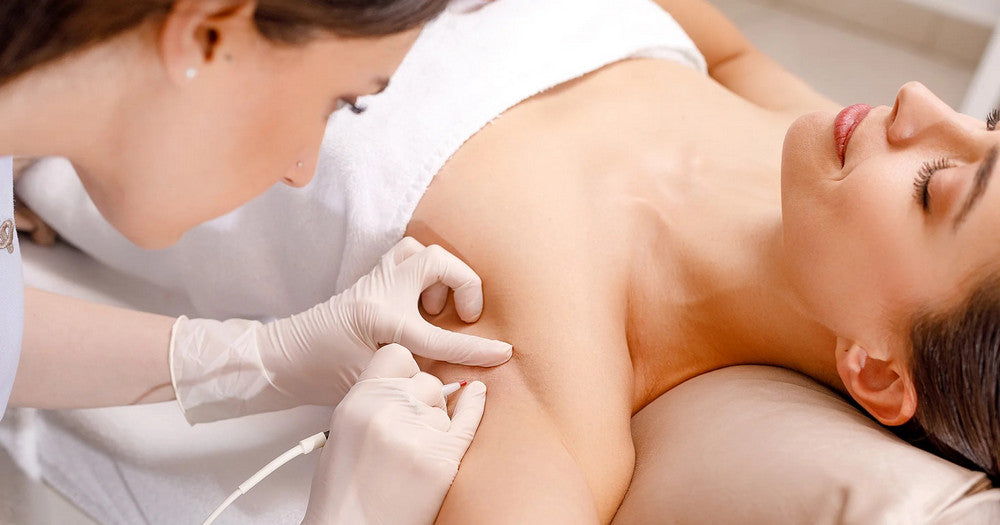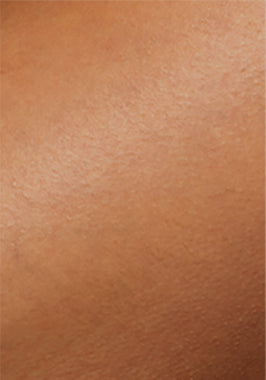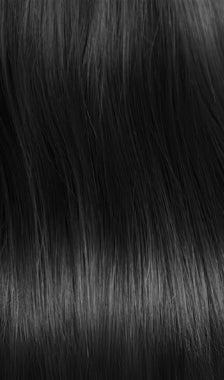Hair removal is important to maintain the hygiene of your intimate area. But unfortunately, the itching caused by hair regrowth is so annoying that everyone thinks about stopping hair removal. It makes you restless and constantly disturbs your concentration.
If you are unable to work and communicate with others, you will lose your self-confidence. Do you also suffer from itchy pubic hair? In this article you will find detailed instructions on how to stop the itching of female pubic hair as it grows back.

- Part 1: Why does pubic hair grow back?
- Part 2: Tips to stop pubic hair itching
- Part 3: Preventing pubic hair itching
- Part 4: When you should seek professional help
- Part 5: Conclusion
Why does pubic hair grow back?
To understand the concept of pubic hair regrowth, we must first understand the hair growth cycle. Your hair is created by the rapid differentiation of stem cells. It is a cyclical process in which the hair grows rapidly and the hair shaft lengthens. The result is hair that is visible on the surface of the skin. The hair growth cycle involves four phases:
O Anagen: It is the phase of rapid growth in which your hair follicle continuously produces hair fibers through differentiation. This causes the hair to lengthen and grow out of the skin. The phase can last for years
O Catagen: It is the transition phase in which the hair follicles shrink in diameter and growth becomes slow. In this phase, the hair also detaches from the hair follicles. It lasts a few days.
O Telogen: In this phase, the hair follicles are resting and no growth occurs. The duration of this phase varies depending on the region.
O Exogenous: It is the phase in which your hair starts to fall out and the beginning of the anagen phase takes place. It lasts 2-5 months.

So, when you remove hair from a particular part of your body, the cycle kicks in and the hair grows back. The cycle also applies to pubic hair and it can take up to 44 days for pubic hair to grow out completely. If you don't pay attention to hygiene and cleanliness during this time, you will feel itchy down there. The itching can also be caused by ingrown hairs when shaving or dry skin. So keep the area clean to prevent bacteria and dead cells from accumulating in the pubic area and prevent the unpleasant hair regrowth.
Tips for relieving pubic hair itching
Let's see what you can do to relieve the recurring itching in the pubic area that makes you restless throughout the day.
Keep the area clean
The most important step is to keep your hair clean. Since the pubic area is mostly covered, people tend not to wash it often and even ignore it when taking a shower. Constant sweating can cause bacteria and fungi to settle there and irritate the skin.
So, keep your pubic area clean and wash it regularly, especially after extreme physical exertion. You can wash the area with warm water or use a washcloth instead. Also, avoid using perfumed soaps as this area is very sensitive.
Hydrate the skin
You've probably noticed that your skin in this area itches when it's dry. The same goes for the pubic area. When it gets dry, you feel uncomfortable. That's why it's important to moisturize the area after every shower to prevent it from drying out.
You can use natural oils like coconut oil, almond oil, pure shea butter or even aloe vera extract for this purpose. A mild moisturizer that suits your skin type can also do the trick.
Avoid scratching
Scratching can make things worse. It's our natural habit to always want to scratch when something itches. Scratching stokes the fire. This causes the area to itch even more and we start scratching aggressively.
The pubic area is sensitive, so aggressive scratching can not only increase the desire to scratch, but also injure the skin. It also increases the risk of infection, which leads to even more itching. So avoid scratching no matter what.
use a cold compress
A cold compress can cool down your itching. This is a home remedy that you can try to quickly relieve pubic itching. It numbs the area and reduces the inflammation that has occurred. However, you should not put ice cubes directly on your skin.
Wrap the ice cubes in a cloth and gently place it on the affected area for 30 seconds to a minute. You will feel immediate relief.
Try an oatmeal bath
Finally, you can also use an oatmeal bath to relieve itching in the vulvar region. Colloidal oatmeal is naturally anti-inflammatory and antioxidant. An oatmeal bath can also help hydrate your skin. Since oatmeal is rich in water-binding polysaccharides, it can help retain moisture and protect the skin from drying out.
It also cleanses your skin, has antiviral properties, and acts as a buffer that maintains your skin's pH level. So, whenever you feel any skin irritation, take an oatmeal bath.

Preventing itching of pubic hair
Another way to relieve pubic hair irritation is to simply prevent it. Let's see what steps you can take.
Try regular peeling
Regularly exfoliating the vulvar region can help prevent the buildup of dirt, dead cells, bacteria and fungi, all of which are a major risk factor for pubic hair itching.
Additionally, regular exfoliation can help reveal your fresh skin. Since there is no buildup of dead cells, the shaved hairs can come out of your soft skin more easily, minimizing the risk of ingrown hairs. You can use a scrub or gloves to gently rub away the dead cells and cleanse your skin.
Learn the right shaving techniques
Your shaving technique is very important. If you don't shave properly or use an old razor, you are inviting ingrown hairs and cuts in your skin.
Proper shaving techniques include the following:
O Use a clean and sharp razor to avoid resistance between your skin and the razor
O Hold your skin slightly taut and guide the razor in the same direction as your hair growth
O Never shave without shaving cream. Shaving creams lubricate your skin and allow the razor to glide smoothly over the skin's surface.
O Rinse your blade after each stroke and then apply a moisturizer
If you are afraid of shaving with creams and gels, you can try natural products like coconut oil.
Trimming instead of shaving
Trimming instead of shaving can also be a smart choice. All you need to do is make your hair shorter and you can do that by trimming it. This will reduce the occurrence of ingrown hairs. Also, it is normal for the area to itch because your coarse hairs come out of the skin after shaving. Therefore, trimming is the better choice because then no more stubble will come out of your skin.
Keep in mind, however, that trimming requires frequent touch-ups and you may not be as smooth as you feel after a shave.
Wear loose-fitting clothing
Your choice of clothing can also play a role in causing itching. For example, if you wear tight-fitting clothes, air cannot circulate, meaning sweat collects there instead of drying. In addition, tight clothing increases friction between the fabric and the skin, causing skin irritation.
They also cause ingrown hairs, so when choosing your underwear or other clothing, make sure it is breathable and loose.
Avoid aggressive products
Harsh products are not good for your skin as they can react with it and cause redness, inflammation, irritation and allergic reactions. These products are not good for your normal skin like arms, hands and feet. And what about the pubic area?
It is already sensitive and harsh chemicals can cause inflammatory reactions, burning and itching. Therefore, choose gentle products without fragrances, formaldehyde or paraffin.

When you should seek professional help
There are times when your home remedies or precautions don't work and the intervention of an expert is necessary. We explain when you should call an expert:
O If the itching is persistent and no relief is achieved by cold compresses, oatmeal baths or other soothing products on the skin
O If you notice any signs of infection, you should not delay an appointment with a specialist. These include rashes, burning, redness, swelling, soreness and pain in the vulva region
Conclusion
Itchy pubic hair during regrowth is very often due to unhygienic conditions, dry skin and ingrown hairs. The discomfort caused by the irritation can be reduced by hygiene, cool compresses, oatmeal baths and a mild moisturizer.
To prevent itching, regular exfoliation, choosing the right clothing and topical products are important. Also, the right shaving cream can help prevent itching. But if none of the above tips help you, it's best to consult a professional to make sure you feel comfortable and that the regrowing hair doesn't itch.




























